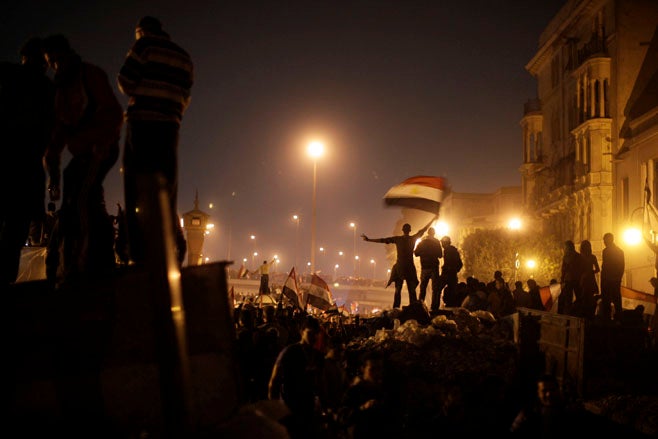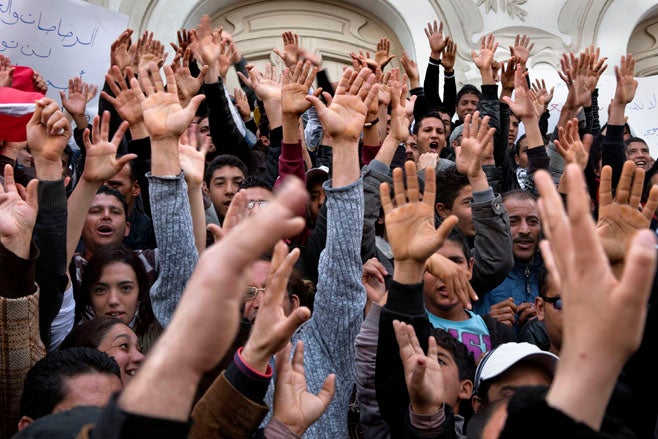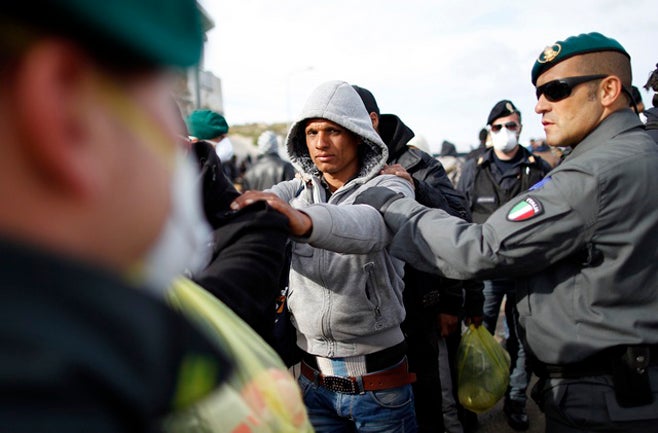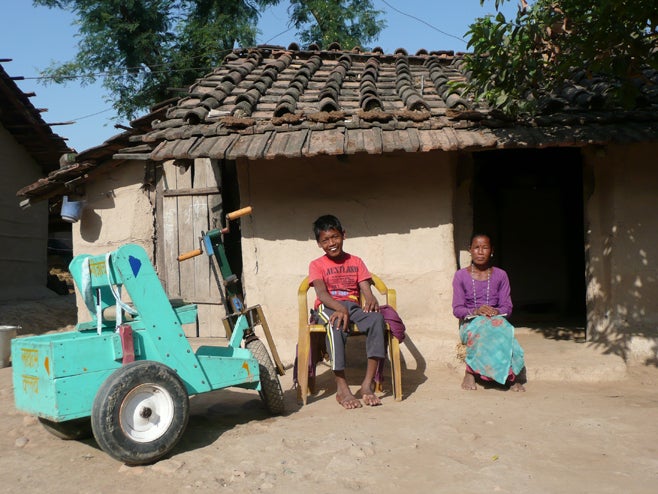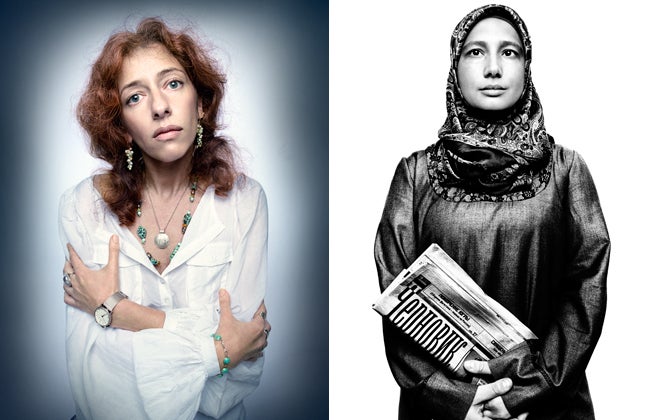The human rights situation in the United Arab Emirates (UAE) worsened in 2011, as authorities cracked down on peaceful dissent by arresting activists, disbanding the elected boards of civil society organizations, and preventing peaceful demonstrations. Despite some progress in addressing violations of migrant workers’ rights in Saadiyat Island, a high profile development and construction zone, the issue remained a source of concern.
Freedom of Association and Expression
Human rights defenders and government critics face harassment, imprisonment, and criminal prosecution. The UAE’s penal code criminalizes speech based on broad content-based restrictions, allowing the government to prosecute people for speech critical of the government, in contravention of international standards.
In April UAE security forces arrested Ahmed Mansoor, a prominent blogger and a member of Human Rights Watch’s Middle East and North Africa Advisory Committee. For at least seven days authorities held him in solitary confinement and refused him access to his lawyer and family. His arrest followed a campaign of harassment against him and other activists after they, and dozens of other UAE nationals, signed a petition in March demanding constitutional and parliamentary reforms. Prior to his arrest Mansoor, a prominent reformer, received six death threats and was the target of an online smear campaign.
In April security forces also detained Nasser bin Ghaith, an economics lecturer at the Abu Dhabi branch of Paris’s Sorbonne University. Bin Ghaith had criticized the government’s failure to undertake significant political reforms. Authorities also arrested three other online activists: Fahad Salim Dalk, Hassan Ali al-Khamis, and Ahmed Abdul Khaleq. The government formally charged the activists under article 176 of the penal code, which makes it a crime to publicly insult the country’s top officials. Authorities additionally charged Mansoor with inciting others to break the law by calling for an election boycott and demonstrations.
The Supreme Court said it would issue a verdict in the largely closed-door trial on November 27. There is no right of appeal.
UAE authorities widened their clampdown on freedom of expression by disbanding the elected boards of the Jurists Association and the Teachers’ Association after they and two other NGOs co-signed a public appeal in April calling for greater democracy in the country. Social Affairs Minister Mariam Mohammed Khalfan Al Roumi issued decrees to replace the two boards with state appointees.
According to the decrees, the associations violated section 16 of the UAE’s 2008 Law on Associations, which prohibits NGOs and their members from interfering “in politics or in matters that impair state security and its ruling regime.” The Law on Associations tightly controls NGOs permitted to operate in the UAE.
On September 24 the UAE held national elections for the Federal National Council (FNC), a government advisory board without legislative powers. The UAE authorities increased the number of eligible voters to 129,000, from about 7,000 in the previous election in 2006. Voters chose only 20 of the 40 FNC seats; the rulers of the seven emirates appointed the other half.
Migrant Worker Rights
According to the latest statistics, foreigners account for more than 88.5 percent of UAE residents, many of them poor migrant workers. Immigration sponsorship laws grant employers extraordinary power over the lives of these workers. They have no right to organize or bargain collectively and face penalties for going on strike. Employment protections laid out in the Labor Law of 1980 do not extend to domestic migrant workers employed in private households. Although the law calls for a minimum wage, the Ministry of Labor has yet to implement it.
Across the country, abuses include unsafe work environments, the withholding of travel documents, and low and nonpayment of wages, despite a mandatory electronic payment system introduced in 2009.
In May Athiraman Kannan, a 32-year-old Indian foreman, jumped to his death from the 147th floor of the Burj Khalifa, the world’s tallest building. Local media reports said that Kannan jumped after his employer denied granting him leave to go home. His death was the 26th known suicide by an Indian worker in the country in 2011.
In January more than 3,000 workers employed by Arabtec went on a two week strike to demand a wage increase. The workers had been making between 650 and 800 dirhams (US$175 and $220) a month. Some alleged that they had not been paid for overtime work. UAE authorities deported 71 Bangladeshi nationals for their alleged role in instigating the strike. According to the government, the UAE saw 34 worker protests in the first three months of 2011, less than half the number from the same period a year ago. The protests were related to delayed payment of salaries, non-payment of overtime, or demands for pay increases, the government said.
The year 2011 saw some positive developments for migrant workers, particularly on Saadiyat Island, the site of a major development and construction project. In March New York University (NYU) announced that it would be hiring the United Kingdom construction firm Mott MacDonald to monitor labor conditions on its Abu Dhabi campuses, while in May the Abu Dhabi Tourism Development and Investment Company (TDIC), a government entity that is the largest developer in Abu Dhabi, announced its appointment of international auditing firm, PwC, to monitor workers’ conditions on Saadiyat Island. Both firms will publish yearly reports on their findings. However, neither NYU nor TDIC have released comprehensive information about the terms of reference and monitoring methodology of their new independent monitors.
In March TDIC also amended its Employment Practices Policy to require contractors to reimburse their employees for any recruitment costs or fees associated with their employment on Saadiyat Island. This followed new labor regulations issued by the UAE government in January to curb exploitative recruiting agents who entrap foreign workers with recruiting fees and false contracts. The new regulations explicitly prohibit UAE recruitment agencies from imposing recruitment fees on workers or intermediaries. If a worker is found to have paid a fee to anyone associated with an Emirati recruitment agency either inside or outside the UAE, the Labor Ministry may compel the agency to reimburse the worker. The regulations also hold recruitment agencies partly liable if they place the worker with an employer who subsequently does not pay the workers, and ban recruiters from placing workers with companies involved in collective labor disputes. Recruiters will have to put down a Dh 300,000 ($81,000) minimum deposit, which will be available to pay workers’ salaries if the company fails to do so. Additionally, agencies must pay Dh 2,000 ($540) per worker for insurance.
Many female domestic workers in the UAE suffer unpaid wages, food deprivation, long working hours, forced confinement, and physical and sexual abuse. The standard contract for domestic workers introduced in April 2007 calls for “adequate breaks” but does not limit working hours or provide for a weekly rest day, overtime pay, or workers’ compensation.
In June the UAE, along with other governments, trade unions, and employers’ organizations, voted to adopt an International Labour Organization (ILO) treaty that extends key labor protections to domestic workers. The ILO Convention on Decent Work for Domestic Workers, which establishes the first global standards for domestic workers worldwide, addresses their routine exclusion from labor protections guaranteed to other workers, such as weekly days off, limits to hours of work, and a minimum wage.
Women’s Rights
The UAE adjudicates family law and personal status matters for Muslims pursuant to interpretations of Islamic law, with no option to seek adjudication pursuant to a civil code. The law in particular discriminates against women by granting men privileged status in matters of divorce, inheritance, and child custody.Emirati women can obtain a divorce through khul’a (a no-fault divorce) thereby losing their financial rights. They may only ask for a divorce in exceptional circumstances. Females can only inherit one-third of assets while men are entitled to inherit two-thirds.
The law further discriminates against women by permitting Emirati men, but not women, to have as many as four polygamous marriages and forbidding Muslim women, but not men, from marrying non-Muslims. Emirati women married to non-citizens do not automatically pass citizenship to their children, a right enjoyed by Emirati men married to foreign spouses.
Despite the existence of shelters and hotlines to help protect women, domestic violence remains a pervasive problem.The penal code gives men the legal right to discipline their wives and children, including through the use of physical violence.The Federal Supreme Court has upheld a husband’s right to “chastise” his wife and children with physical abuse.
In the September elections 85 women out of 450 ran for 20 FNC seats. Only one woman was voted into office.
